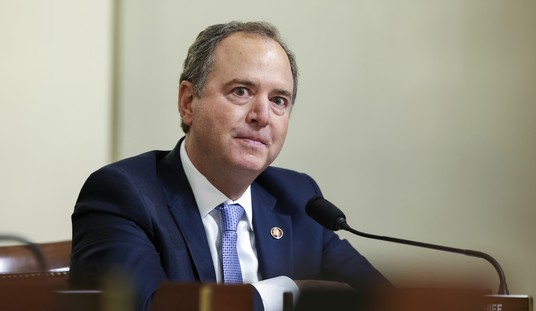Alternate headline: Desperate candidate blunders into the political center. Elizabeth Warren’s hail-Mary play to go after online giants may resonate with populist progressives who mistrust corporations as well as conservatives who see them as threats to their ability to speak in public. Her prescription for the cure will not, however:
Twenty-five years ago, Facebook, Google, and Amazon didn’t exist. Now they are among the most valuable and well-known companies in the world. It’s a great story — but also one that highlights why the government must break up monopolies and promote competitive markets. …
Today’s big tech companies have too much power — too much power over our economy, our society, and our democracy. They’ve bulldozed competition, used our private information for profit, and tilted the playing field against everyone else. And in the process, they have hurt small businesses and stifled innovation.
I want a government that makes sure everybody — even the biggest and most powerful companies in America — plays by the rules. And I want to make sure that the next generation of great American tech companies can flourish. To do that, we need to stop this generation of big tech companies from throwing around their political power to shape the rules in their favor and throwing around their economic power to snuff out or buy up every potential competitor.
So far, so good, right? These are the same complaints that conservatives have with these online entities, only perhaps missing one key piece — their hostility to conservatives. Warren loops that into a more generalized complaint about political and economic power and having “tilted the playing field,” albeit economically.
So how does Warren propose to deal with the problem? That’s where conservatives will likely jump off the bandwagon. Bloomberg summarizes Warren’s proposal, which goes on for some length in her Medium essay:
The Massachusetts senator is calling for legislation that would designate the companies as “platform utilities” and the appointment of regulators who would unwind technology mergers that undermine competition and harm innovation and small businesses. …
Warren proposes that some mergers by the biggest tech companies be unwound, including Amazon’s purchase of Whole Foods and Zappos; Facebook’s acquisition of WhatsApp and Instagram, and Google’s deals for Waze, Nest and DoubleClick.
Under her proposal, so-called designated platform utilities with more than $25 billion in global revenue would be prohibited from owning any of the participants on their own platform. That means that Amazon Marketplace and AmazonBasics would be split apart, as would Google’s ad exchange and its businesses on the exchange. Google Search would have to be spun off as well.
“Platform utilities”? What’s the purpose for that tag? It’s an entrée for government control, which would accomplish the polar opposite of what Warren claims to champion in breaking up these online giants. That would reinforce the political and economic power within these entities rather than break it down, especially after politicians realize just how well they can use that regulatory power for their own benefit — and vice versa. We have decades of experience on which to rely for predicting those outcomes.
Why not just strengthen existing anti-trust policy through legislation that allows for the kind of break-up plans Warren espouses here? There is no need to predicate that on a definition of a public utility. The US didn’t have to do that to break up Standard Oil, and the US undid the public-utility designation on AT&T when they broke up Ma Bell in the early 1980s. In both cases, anti-trust efforts took on longstanding corporations and produced massive economic benefits with less government interference.
Warren’s plan is nothing more than a power grab of its own. However, it still points up an issue that the Right has ignored for far too long at its peril. Four decades of largely unrestricted mergers and acquisitions have resulted in the consolidation of far too much economic and political power into too few hands. The result is a feeling of dislocation and powerlessness that fuels populism on both sides of the political divide — and too often has people on both sides looking for strongmen rather than rational policies to correct the imbalance.
That populism feeds on itself in a very unhealthy way, I warned not long ago:
However, left-wing populists have also emerged and might even be ascendant at the moment. Bernie Sanders went from a back-bench crank to nearly grab the presidential nomination of the Democratic Party. D’Ambrosio’s oversight shortchanges the real concerns that drive populism on the other side of the ideological aisle — some of which overlap with those on the right, including deep suspicion of global markets and the people who benefit by them. Decades of consolidation by mergers and acquisitions in every industry have pushed more wealth and power into fewer and fewer hands. Rather than have existing institutions and those governing them check that trend, the people increasingly believe that all the consolidated money and power has warped the institutions into legal and political cover for a small group of beneficiaries.
The 2016 election cycle showed the result of those institutional failures. Americans elected someone who would act against those institutions to deliver populist justice, and nearly had both major-party candidates for options. The corrosion of the legislative process both fuels and highlights this problem. Congress isn’t interested in compromise because voters aren’t interested in it. And that’s because compromise has become a catch-word for the status quo of disconnection and inauthenticity.
The solution to this issue isn’t shifting all that consolidated power to the federal government, but to use the anti-trust option to deconstruct it directly. It’s a government intervention that results in less pressure for rent-seeking regulation, not more, as Warren’s policy would. And it should be applied across the board, not just with online entities like Google and Facebook but also to news networks, entertainment producers, and especially the Too Big to Fail financial institutions that somehow never got properly addressed after the Great Recession.
It might take a long time to unwind what we’ve allowed to accumulate, but we need to start planning for it now. And if conservatives don’t start engaging in this conversation, we will allow the socialists to define the solutions in ways we most certainly will not like — and will be powerless to stop.







Join the conversation as a VIP Member